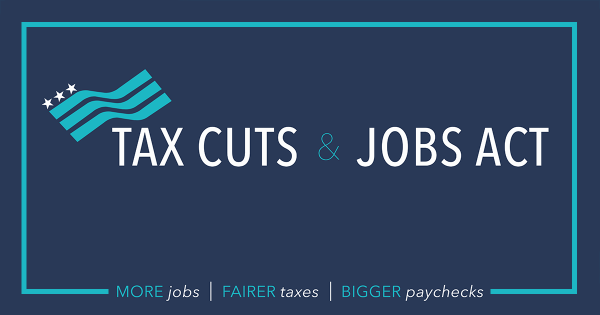 Many have heard of the new Section 199A in the Tax Bill which will allow owners of sole proprietorships, S corporations and partnerships to take a deduction of 20% against their income from the business. But how does this new provision impact farmers? The following guest blog courtesy of CliftonLarsonAllen helps answer that question.
Many have heard of the new Section 199A in the Tax Bill which will allow owners of sole proprietorships, S corporations and partnerships to take a deduction of 20% against their income from the business. But how does this new provision impact farmers? The following guest blog courtesy of CliftonLarsonAllen helps answer that question.
Should you wish to discuss tax reform and its impact on you or your business, please be sure to contact one of our fantastic member businesses with tax expertise.
Guest Blog from CliftonLarsonAllen
Over the last couple days, we have had several questions as to how the 20% deduction for qualified business income will work for a farm. Below we explain how the deduction is calculated and provide some examples. Based on our analysis, this deduction will be very beneficial to individuals doing business with a cooperative.
20% deduction for qualified business income (New)
- Effective tax years beginning after December 31, 2017, and before January 1, 2026
- Equal to the sum of
- The lesser of
- Combined qualified business income amount of the taxpayer or
- 20% of the excess, if any, of the taxpayers’ s taxable income over the sum of any net capital gain and qualified cooperative dividends
- Plus the lesser of
- 20% of qualified cooperative dividends (Qualified cooperative dividends include patronage dividends, per-unit retain allocations, qualified written notices of allocations, or similar amounts) or
- Taxable income reduced by the net capital gain
- The lesser of
- Combined qualified business income amount equals
- Sum of the amounts for each qualified trade or business
- Lesser of
- 20% of the taxpayers qualified business income with respect to the qualified trade or business or
- The greater of
- 50% of the W2 wages with respect to the qualified trade or business أو
- The sum of 25% of W2 wages with respect to the qualified trade or business plus 2.5% of the unadjusted basis of all qualified property
- Note: Individuals with income less than $157.5K ($315K joint) will not be subject to the 50% wage limitation
- Lesser of
- Plus 20% of the taxpayer’s qualified REIT dividends and qualified publicly traded partnership income
- Sum of the amounts for each qualified trade or business
- Qualified business income = the net amount of qualified items of income, gain, deduction, and loss with respect to any qualified trade or business (excludes REIT dividends, qualified cooperative dividends, or qualified publicly traded partnership income)
- Note: Not a deduction to arrive at adjusted gross income (AGI)
Example 1: A farm earns $300K, pays wages of $125K, has gross cooperative distributions of $3M, and has original asset cost of $750K. The taxpayer files married filing jointly. The amount deductible is calculated as follows:
Equal to the sum of
- The lesser of
- $0 Combined qualified business income (20% x ($300K-$3M)) Note: Since the taxpayer’s income is less than $315K the wage limitation does not apply
- $0 (20% x ($300K-($0K+$3M)
- Plus the lesser of
- $600K = 20% qualified cooperative dividends (20% x $3M)
- $300K = Taxable income reduced by net capital gain
- The farmer can deduct the $300K, bringing their taxable income to zero.
Example 2: Same facts as example 1, except the farm earns $400K. The amount deductible is calculated as follows:
Equal to the sum of
- The lesser of
- $0 Combined qualified business income (lesser of 20% x ($400K-$3M) or greater of (50% x $125K) or (25% x $125K plus 2.5% x $750K)
- $0 (20% x ($400K-($0K+$3M)
- Plus the lesser of
- $600K = 20% qualified cooperative dividends (20% x $3M)
- $400K = Taxable income reduced by net capital gain
- The farmer can deduct the $400K, bringing their taxable income to zero.
Example 3: Same facts as example 1, except the farm, earns $1M. The amount deductible is calculated as follows:
Equal to the sum of
- The lesser of
- $0 Combined qualified business income (lesser of 20% x ($1M-$3M) or greater of (50% x $125K) or (25% x $125K plus 2.5% x $750K)
- $0 (20% x ($1M-($0K+$3M)
- Plus the lesser of
- $600K = 20% qualified cooperative dividends (20% x $3M)
- $1M = Taxable income reduced by net capital gain
- The farmer can deduct the $600K, bringing their taxable income to $400K.




